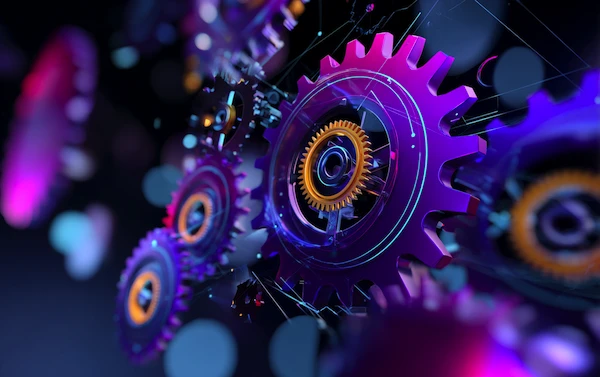Coming Up
What is Data Standardization?
Data standardization is the process of converting data from disparate sources into a consistent format. This ensures uniformity and compatibility across various systems and departments. By implementing common data standards and protocols for capturing, storing, and sharing data, organizations can improve data quality, facilitate data integration, and enable more accurate analysis and reporting.
Why is Data Standardization Important?
Data standardization is crucial for several reasons:
- Improved Data Quality: Standardizing data reduces errors, inconsistencies, and redundancies, leading to cleaner, more reliable datasets.
- Enhanced Interoperability: It enables seamless data exchange between different systems and platforms, improving collaboration and operational efficiency.
- Accurate Analysis and Reporting: Consistent data formats facilitate more accurate business intelligence (BI) and analytics, leading to better decision-making.
- Cost Efficiency: Reducing data errors and improving processing efficiency can significantly cut operational costs.
- Regulatory Compliance: Standardized data helps ensure compliance with industry regulations and standards, reducing the risk of penalties and legal issues.
What are the Benefits of Data Standardization?
The benefits of data standardization span across various aspects of business operations:
- Consistency: Uniform data formats across systems make it easier to integrate and compare data.
- Efficiency: Streamlined data processes reduce manual intervention and processing time.
- Collaboration: Standardized data promotes better communication and collaboration between departments and external partners.
- Scalability: It simplifies scaling data processes as the organization grows.
- Better Decision-Making: Higher quality data leads to more accurate insights and informed business decisions.
What are the Challenges of Data Standardization?
While data standardization offers significant benefits, it also presents several challenges that organizations must navigate:
- Data Complexity: Dealing with diverse data formats, structures, and sources can be challenging.
- Change Management: Implementing new standards requires training and change management efforts.
- Resource Intensive: Standardizing data can be resource-intensive, requiring time, technology, and skilled personnel.
- Resistance to Change: Stakeholders may resist changes to established data processes and systems.
What are Techniques for Data Standardization?
Various techniques can be employed to standardize data effectively. These techniques help ensure data consistency and reliability across systems:
- Defining Standards: Establish clear guidelines for data formats, values, and structures.
- Data Cleaning: Identify and rectify errors, inconsistencies, and inaccuracies in the data.
- Data Transformation: Convert data into a consistent format and structure, such as standardizing date formats and units of measurement.
- Validation: Regularly test and validate data against defined standards to ensure accuracy and consistency.
- Automation Tools: Use data automation platforms to streamline the standardization process and reduce manual efforts.
How Does Data Standardization Work?
Data standardization involves several steps, each critical for ensuring the data's accuracy and usability:
- Identify Data Sources: Determine all the sources from which data is collected.
- Define Standards: Establish rules for data formats, values, and structures.
- Clean Data: Remove duplicates, correct errors, and resolve inconsistencies.
- Transform Data: Convert data into a standard format.
- Validate Data: Check for compliance with defined standards and rectify any deviations.
What are Use Cases for Data Standardization?
Data standardization is applicable in various industries and can significantly enhance operations and outcomes:
- Healthcare: Standardizing patient data for improved care coordination and outcomes.
- Finance: Ensuring consistent financial reporting and compliance with regulations.
- Retail: Integrating sales and inventory data from multiple sources for better inventory management and customer insights.
- Manufacturing: Harmonizing production data to optimize operations and quality control.
What to Look for in a Data Standardization Tool?
Choosing the right tool for data standardization is crucial for effective implementation and long-term success. Here’s what to look for:
- Compatibility: Ability to integrate with existing systems and handle diverse data sources.
- Ease of Use: User-friendly interface and minimal learning curve.
- Scalability: Capability to handle large volumes of data as the organization grows.
- Automation: Features for automating data cleaning, transformation, and validation processes.
- Support and Training: Availability of support and training resources to ensure successful implementation and adoption.
How to Get Started With Data Standardization?
Starting with data standardization involves a structured approach to ensure successful implementation:
- Assess Current Data Quality: Evaluate the current state of your data and identify key areas for improvement.
- Define Clear Standards: Establish comprehensive data standards that meet organizational needs.
- Choose the Right Tools: Select data standardization tools that align with your requirements.
- Implement Gradually: Start with a pilot project and gradually scale up the standardization efforts.
- Train Stakeholders: Ensure all relevant personnel are trained on the new standards and tools.
- Monitor and Iterate: Regularly review and refine the standardization process to ensure continued effectiveness.
How Solvexia Helps with Data Standardization
Solvexia offers robust solutions for data standardization, including:
- Automated Data Processing: Streamline data cleaning, transformation, and validation with automation.
- Integration Capabilities: Easily integrate with various data sources and systems.
- Scalability: Handle large volumes of data efficiently as your organization grows.
- Expert Support: Access to a team of experts to assist with implementation and ongoing support.
For more information on how Solvexia can help you with data standardization, explore our data automation solution.
.svg)































